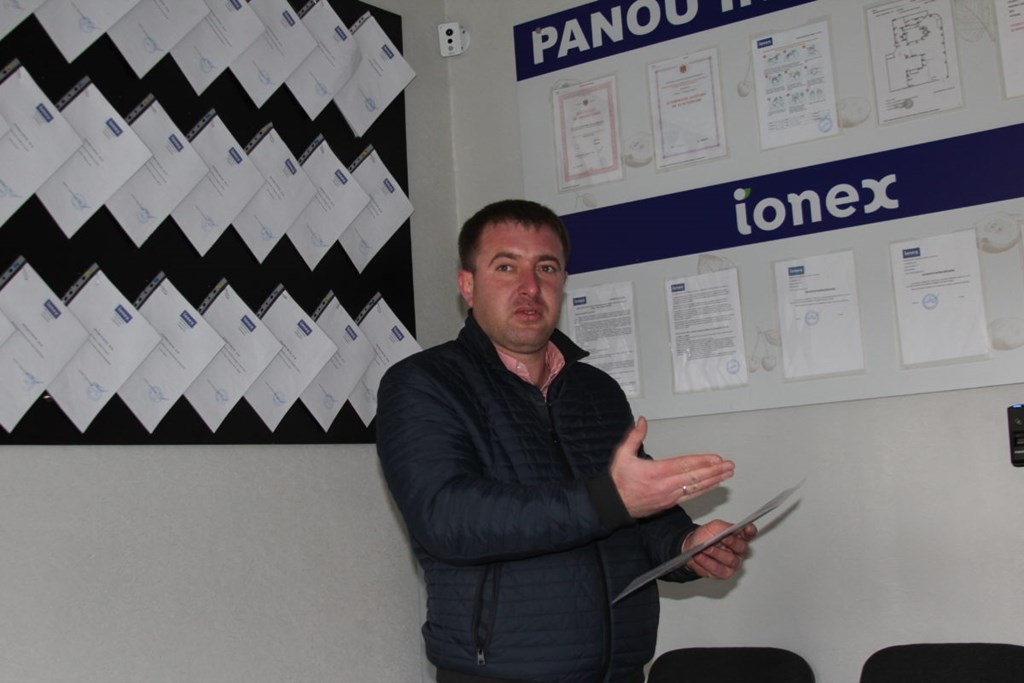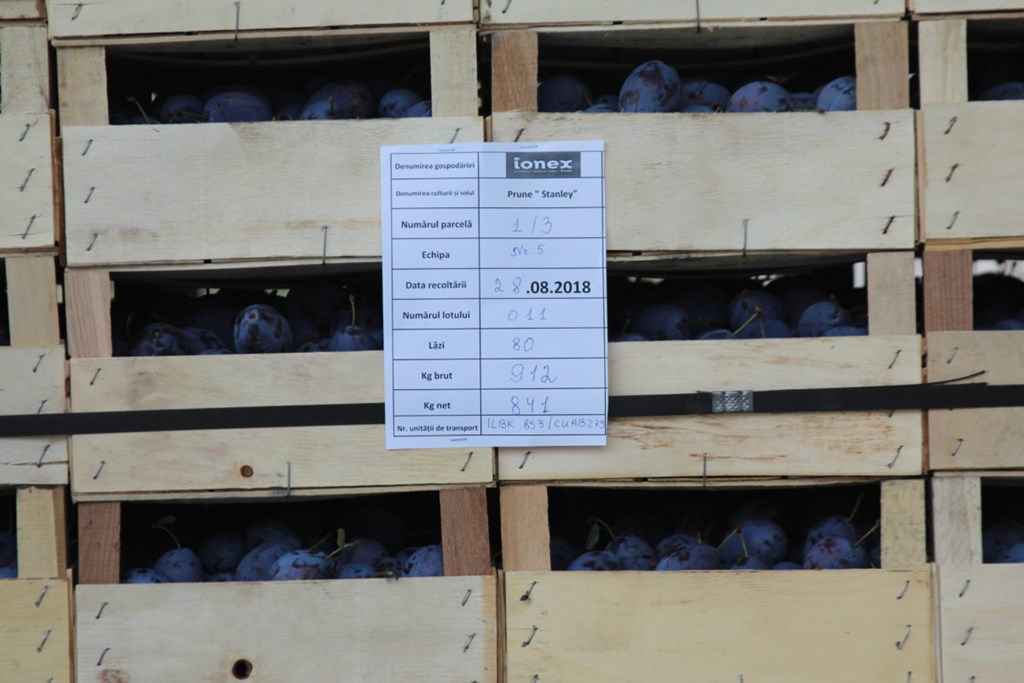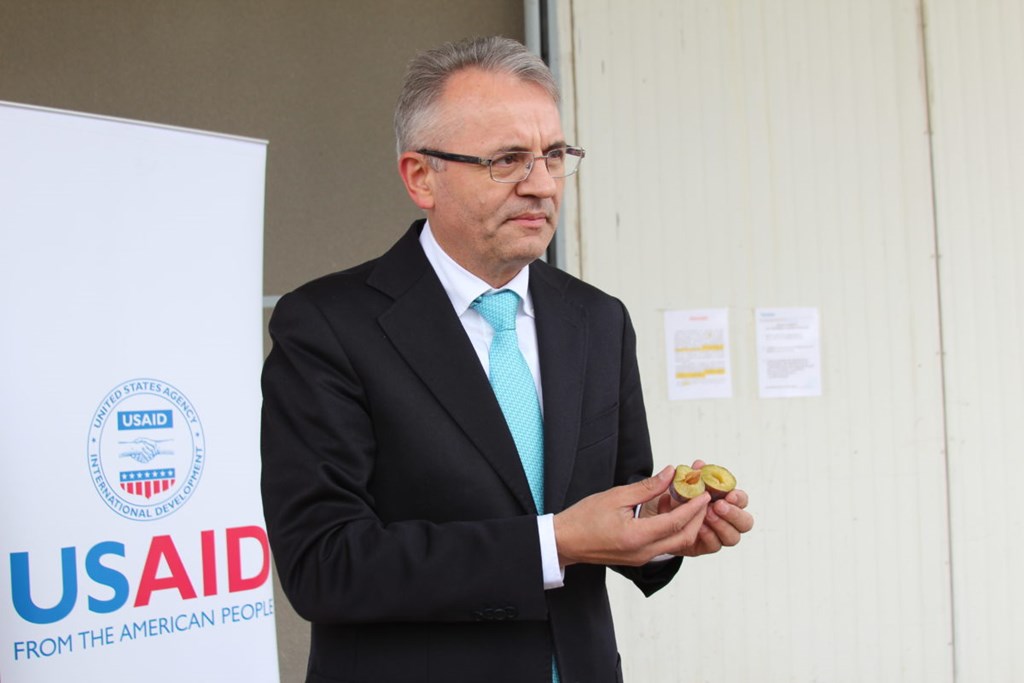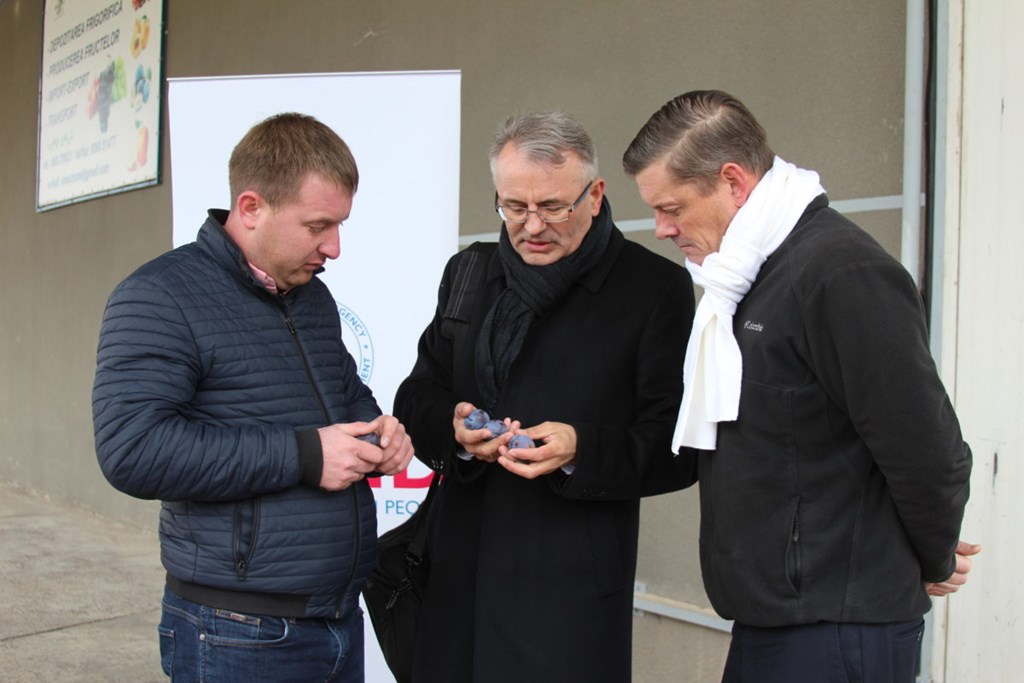More than 20 internationally certified agricultural producers are active in the Republic of Moldova, allowing them to sell their goods on specialized international purchasing platforms. More recently, starting this year, the USAID project helped two agricultural producers to obtain, for the first time in the Republic of Moldova, Global G.A.P GRASP certificates, confirming the social responsibility of agricultural households.

One producer who has already felt the benefits of applying international quality standards is Ion Ionas, the manager of Ionex Trans SRL, of Costesti village, Ialoveni district. The company was launched in 2001 by Gheorghe Ionas, and later his son Ion took the lead.
It produces plums, cherries, apricots and table grapes. The main sale market for Ionex Trans to date has been the eastern market. With the international GlobalG.A.P. certification, the company started to export plums to Romania, Poland and Germany.

“This year is a more special year than the previous years, we have decided not to risk so much. Firstly, the climate conditions have not allowed us to produce high quality plums, and for this reason, we decided that it is better to have money in our pocket than plums on the tree. We have marketed plums in Romania, Poland, Germany, the Russian Federation and Belarus. The prices were very low, but we were lucky due to the quantity, so we were able to cover the expenses. Last year, we harvested from 15 ha of orchard, 140 tons of plums, this year we harvested 400 tons and the quality was different, respectively," Ion Ionas said for Agrobiznes.
After years of working abroad, the young man decided to come home, especially since he already had his father's active business.
"I was gone to America, and I was ready to stay there, but after half a year I decided to come back. Until I get the GlobalG.A.P. certificate, for 3 years I attended various trainings, to understand what this certificate represents. In the spring of this year, I started to implement the standards.
It was difficult, but I did it. At the same time, I have participated in several exhibitions and seminars that have helped me to understand how to produce in a qualitative way, because I believe that there is no problem in the sale of our products, but in producing qualitative products. Our company first dealt with the sales, and later we built the first cold store and then started producing. The cold store we own is for 800 tons.
To be able to export you have to grow quality fruits, you can't go abroad with bad quality fruits. It is no longer an export problem for us, regardless of where, in the East or in the EU. It is easier for me to export to European markets than to the Russian Federation. Recently, we exported 3 plum trucks to the Russian Federation, but we had a lot of problems.
In the EU, it was much harder for me until I made my first steps, now I already have no difficulties. I have decided to get the GlobalG.A.P. certificate to have a better product. That is why we have been able to export plums to Europe, not much, but we have made the first step. I am satisfied with the results achieved, " the producer noted.
Ion Ionas recommends that all horticulturists, who want to obtain quality fruits, comply strictly with the value chain and perform the agro-technical works on time.

"Since 2009, we have respected the whole value chain. Thus, it is necessary to sprinkle trees and disinfect them with Bordeaux mixture and sulfur in the autumn. In spring, we repeat the procedure to prevent moniliosis. To do the necessary sprinkling you need to monitor the situation in your field.
Compliance with the technology and carrying out all agro-technical works on time shall in principle determine the quality of the fruits. Equally important is to respect the production technologies. Until we administer fertilizers, we carry out an analysis of the soil, so that we know exactly what elements are needed and in what quantities, " the manufacturer explained.
The company has big plans for the future, thus until the spring of 2019, it plans to plant 100 hectares of fruit orchards (apricots, plums and cherries).
“This year, we got the GlobalG.A.P. certificate only for plums, but we want that all production from Ionex Trans be provided with this quality certificate. We have big plans, first of all, we want to finish the planting, to get to 100 hectares of orchard, then to obtain the certificate. I like to risk and I don't accept taking steps back. Difficulties are just a challenge. I don't want to follow the train, I want to be at the head of the train," the young man added.
In this regard, Dr. Andrei Cumpanici, a Specialist in Food Safety and Post Harvest in the EAM project, specified that pre-harvest activities must be respected for quality fruits, starting from plant protection.

"The company Ionex Trans implemented the requirements to ensure traceability of the product and to guarantee high quality to the final consumer. That is, if we speak of the quality of the plums, then we should mention that following the pre-harvest and post-harvest stages, we can count on having quality fruits that can be maintained for an optimal period.
The producers should retain that the storage temperatures may also be -1 °C and -1.5 °C depending on the dry substances soluble in plums. Therefore, the producers must monitor the firmness of the plums during storage, and we are talking about internal scald at the pulp and stone levels. If plums are kept longer than the optimal term, they will lose their specific organoleptic qualities to this culture. As regards the scald, it starts from the optimal harvest stage.
At the same time, fair fertilization must be carried out by applying the micro and macro-nutrients necessary to maintain a firm pulp, pre-cooling and post-harvest treatments. Treatments are used to prevent internal distortions in the pulp. This process cannot be extended indefinitely, this is why it is important to respect the temperature and the storage period. The storage period depends on the varieties and factors mentioned above, " the expert pointed out.

Annually, the company exports around 2000 tons of fruits (grapes, apples, plums) around 600 tons represent its own production, of which 400 tons of plums.
